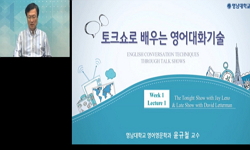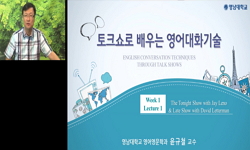Theorists in SLA have long discussed how to cope with student errors, and their opinions are different depending on their positions (Krashen 1982; Lado 1961; and Long 1996). This paper investigates how Korean EFL learners feel about error correction i...
http://chineseinput.net/에서 pinyin(병음)방식으로 중국어를 변환할 수 있습니다.
변환된 중국어를 복사하여 사용하시면 됩니다.
- 中文 을 입력하시려면 zhongwen을 입력하시고 space를누르시면됩니다.
- 北京 을 입력하시려면 beijing을 입력하시고 space를 누르시면 됩니다.
https://www.riss.kr/link?id=A101824766
- 저자
- 발행기관
- 학술지명
- 권호사항
-
발행연도
2003
-
작성언어
English
- 주제어
-
등재정보
KCI등재후보
-
자료형태
학술저널
- 발행기관 URL
-
수록면
345-364(20쪽)
-
KCI 피인용횟수
0
- 제공처
- 소장기관
-
0
상세조회 -
0
다운로드
부가정보
다국어 초록 (Multilingual Abstract)
Theorists in SLA have long discussed how to cope with student errors, and their opinions are different depending on their positions (Krashen 1982; Lado 1961; and Long 1996). This paper investigates how Korean EFL learners feel about error correction in their conversation classes, which may indicate a rationale for correcting student errors. A total of 819 university-level learners completed the Questionnaire measuring Attitude toward Error Correction (the QATEC). The data indicated that the learners had very positive attitudes toward error correction and that the attitude scores were significantly different between different proficiency levels. A comparison showed a noteworthy cross-cultural difference in attitudes toward error correction: both American and Colombian foreign language learners had more positive attitudes toward error correction than Korean EFL learners.
동일학술지(권/호) 다른 논문
-
- 언어과학회
- 권영수(Kwon Young Su)
- 2003
- KCI등재후보
-
Categorization and the Distinction of Metaphor and Simile
- 언어과학회
- Kim Ki Soo(김기수)
- 2003
- KCI등재후보
-
- 언어과학회
- 김재욱(Kim Jae Wook)
- 2003
- KCI등재후보
-
말 중단시키기(Unterbrechung)의 담화기능과 성
- 언어과학회
- 김홍자(Kim Hong Ja)
- 2003
- KCI등재후보
분석정보
인용정보 인용지수 설명보기
학술지 이력
| 연월일 | 이력구분 | 이력상세 | 등재구분 |
|---|---|---|---|
| 2026 | 평가예정 | 재인증평가 신청대상 (재인증) | |
| 2020-01-01 | 평가 | 등재학술지 유지 (재인증) |  |
| 2017-01-01 | 평가 | 등재학술지 유지 (계속평가) |  |
| 2013-01-01 | 평가 | 등재학술지 유지 (등재유지) |  |
| 2010-01-01 | 평가 | 등재학술지 유지 (등재유지) |  |
| 2008-01-01 | 평가 | 등재학술지 유지 (등재유지) |  |
| 2006-04-24 | 학회명변경 | 영문명 : 미등록 -> The Linguistic Science Society |  |
| 2005-01-01 | 평가 | 등재학술지 선정 (등재후보2차) |  |
| 2004-01-01 | 평가 | 등재후보 1차 PASS (등재후보1차) |  |
| 2002-07-01 | 평가 | 등재후보학술지 선정 (신규평가) |  |
학술지 인용정보
| 기준연도 | WOS-KCI 통합IF(2년) | KCIF(2년) | KCIF(3년) |
|---|---|---|---|
| 2016 | 0.35 | 0.35 | 0.34 |
| KCIF(4년) | KCIF(5년) | 중심성지수(3년) | 즉시성지수 |
| 0.34 | 0.35 | 0.608 | 0.09 |





 KCI
KCI DBpia
DBpia







